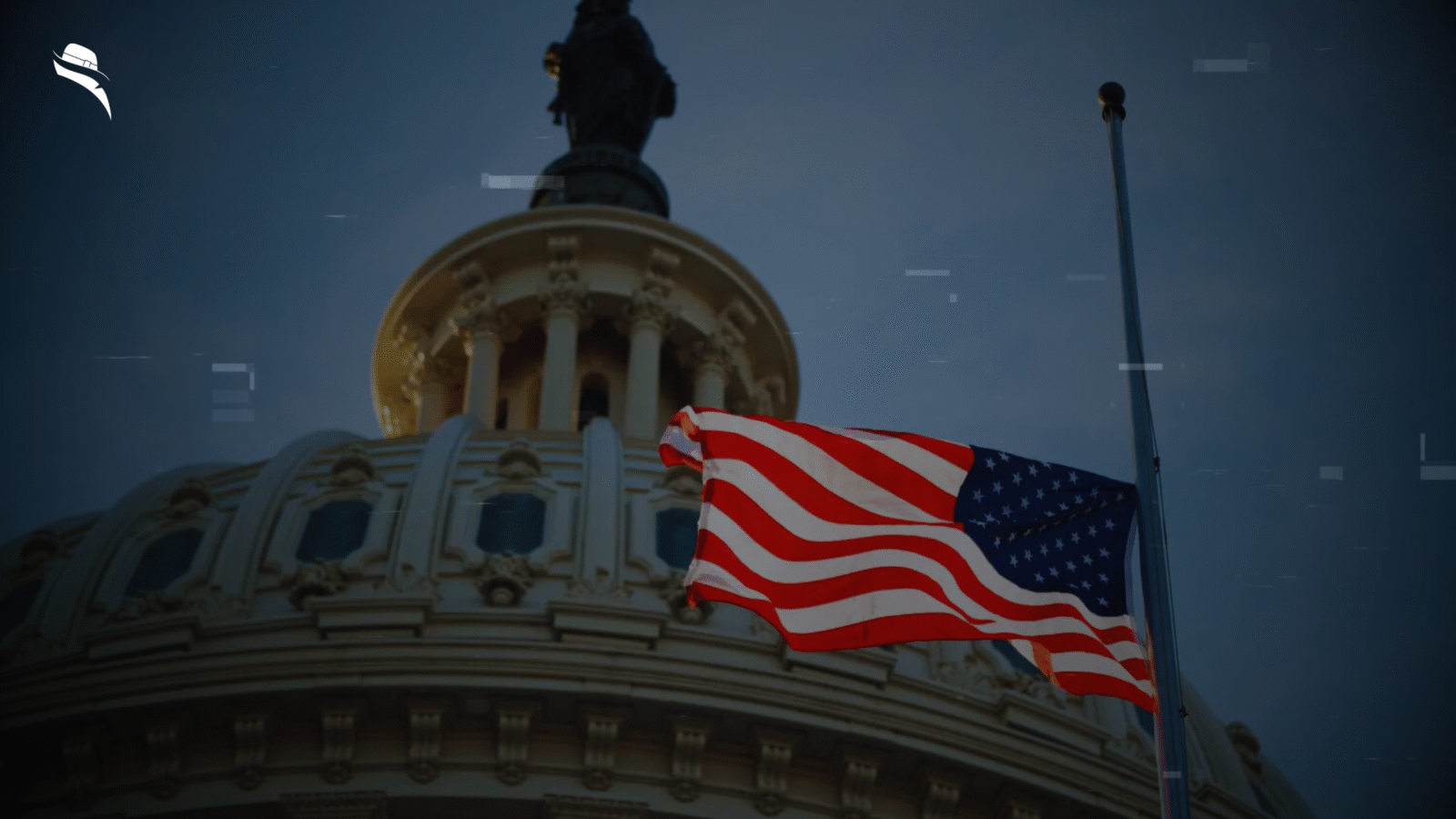The “America First” slogan has become a lightning rod in discussions about national loyalty, particularly when it intersects with Jewish identity and support for Israel. Recently, this debate intensified when Florida Republican Congressman Randy Fine introduced the Disqualifying Dual Loyalty Act of 2025, which proposes that no person with dual citizenship may be elected to Congress.
Despite the political rhetoric surrounding dual loyalty, the relationship between American patriotism and Zionism has deep historical roots. Under Louis Brandeis’s leadership, the American Zionist movement grew twentyfold in just five years, demonstrating that many Americans saw no contradiction between supporting both causes. However, contemporary political figures often weaponize these identities, as evidenced by far-right commentators with millions of followers who use antisemitism as a platform. At the same time, approximately 70% of American Jews lean toward the Democratic Party.
This article explores the complex question of whether Zionism can coexist with an “America First” worldview. By examining historical precedents, current political tensions, and evolving Jewish-American identities, we’ll unpack the nuanced relationship between these seemingly conflicting loyalties and their implications for American Jews today.
The Political Weaponization of Jewish Identity
In American politics, accusations of “dual loyalty” against Jewish Americans have become a powerful political weapon. This antisemitic trope alleges that Jews are more loyal to Israel or global Jewish interests than to their own nations, a charge that has been used for centuries to scapegoat, harass, and even justify violence against Jewish communities.
Trump’s repeated use of the dual loyalty trope
Former President Trump notably employed this rhetoric in 2019 when he declared that Jewish Americans who vote for Democrats show “either a total lack of knowledge or great disloyalty”. He doubled down on these comments, stating that voting Democratic means “being disloyal to Jewish people and very disloyal to Israel”. This language evoked centuries-old antisemitic accusations questioning Jewish Americans’ patriotism. According to a 2024 Anti-Defamation League study, 56% of respondents agreed with the notion that Jews are more loyal to Israel than to their home country.
How political figures use Jewish identity to score points
The weaponization of Jewish identity extends across the political spectrum. Political figures frequently invoke antisemitism not to protect Jews but to attack opponents. The International Holocaust Remembrance Alliance (IHRA) definition of antisemitism, adopted in multiple federal and state statutes, has been used to equate criticism of Israel with antisemitism. Consequently, Jewish identity becomes a political tool that both sides deploy for their advantage, reducing complex issues to simplistic accusations.
Reactions from Jewish organizations and leaders
Jewish organizations have strongly condemned this politicization. The National Council of Jewish Women emphasized that “antisemitism should never be weaponized.” Meanwhile, the Anti-Defamation League’s Jonathan Greenblatt noted that “charges of disloyalty have long been used to attack Jews”. Furthermore, a survey found that 72% of American Jews believe antisemitism is being used as an “excuse” to punish universities and other institutions. Jewish leadership consistently maintains that exploiting antisemitism for political gain actually endangers Jewish communities rather than protecting them.
Understanding ‘America First and Zionism’
The intersection between American nationalism and support for Israel presents a complex political dilemma in today’s polarized landscape.
What ‘America First’ really means
At its core, “America First” represents a foreign policy approach centered on prioritizing American interests above all else. In its literal interpretation, this philosophy suggests that the United States should view all international relationships through the lens of national self-interest. Proponents describe it as neither isolationist nor interventionist, instead focusing on a pragmatic, transactional approach to global affairs. As one advocate explained, “An America First approach acknowledges the reality of the world for what it is… rather than how the foreign policy establishment would like them to be”.
Zionism’s goals and how they align or conflict
Zionism’s fundamental aim – establishing “a Free People in Our Land” – shares philosophical similarities with nationalist movements. Israel’s Declaration of Independence explicitly states that Jews deserve “to be masters of their own fate, like all other nations, in their own sovereign State”. This sovereign focus potentially aligns with America First principles of national self-determination.
Can support for Israel coexist with American nationalism?
Recent polling suggests an evolving relationship, as 39% of Americans now believe Israel is “going too far” in its military operations, up from 27% in late 2023. Additionally, 59% hold an unfavorable opinion of the Israeli government. Some America First advocates now question whether unconditional support for Israel contradicts their core beliefs. As one critic noted, “it seems obvious… that the United States and Israel have vastly different strategic interests”. Nevertheless, others insist the relationship remains compatible, arguing that “defending the interests of U.S. citizens ‘first’ is both moral and a wise policy”.
The Historical Case of Louis Brandeis
Louis Brandeis presents a fascinating historical case study of resolving the apparent tension between American patriotism and Zionist commitment.
Brandeis’ early assimilation and later Zionism
Originally raised in a secular Jewish household in Louisville, Kentucky, Brandeis grew up celebrating Christmas and had minimal Jewish identification. Born in 1856 to German-speaking Jewish immigrants from Prague, his family largely ignored their Jewish heritage. Throughout his early life, Brandeis remained distant from Jewish affairs, once commenting that “I have been to a great extent separated from the Jews.”
His transformation began in 1910 during his mediation of a New York garment workers’ strike, where he was impressed by Jewish workers and employers. Subsequently, his meeting with Zionist leader Jacob de Haas, who mentioned Brandeis’s uncle Lewis Dembitz’s support for Theodor Herzl, sparked his interest in Zionism.
Why did he see no contradiction between the two
Remarkably, Brandeis formulated a philosophy that made Zionism acceptable to American Jews by asserting that Zionism and American patriotism reinforced each other. “To be good Americans, we must be better Jews, and to be better Jews, we must become Zionists,” he declared. He believed Judaism was the source of American constitutional values, writing that brotherhood “became the Jews’ fundamental law more than twenty-five hundred years ago.”
How his leadership shaped American Zionism
Under Brandeis’s leadership from 1914, the American Zionist movement grew from 12,000 to 176,000 members in five years. His organizational skills and fundraising acumen transformed American Zionism, increasing its budget from thousands to millions. Essentially, he established the compact that still governs American Jews’ relationship with Israel: providing financial and moral support without sacrificing their American identity.
The Future of Jewish-American Political Identity
A silent revolution is reshaping Jewish-American political identity as traditional definitions of loyalty and patriotism face unprecedented challenges.
The impact of proposed dual citizenship laws
In response to political uncertainty, many American Jews are exploring dual citizenship options, particularly with Germany. Applications for German citizenship have surged, with applicants citing the need for a “Plan B” amid what they perceive as alarming political parallels to historical persecution. As one applicant noted, “This rise of authoritarianism just parallels the rise of Hitler”. Moreover, the proposed Disqualifying Dual Loyalty Act of 2025 directly challenges the civic standing of dual citizens, potentially forcing painful choices for many Jewish Americans.
Younger generations and shifting views on Israel
A striking generational divide has emerged in attitudes toward Israel. Only 41% of Americans aged 18-29 hold favorable views of Israel, compared to 69% among those 65+. Similarly, younger Jewish Americans feel less connected to Israel, with only 48% of Jews aged 18-29 feeling “attached to Israel,” versus 67% of those 65+. Consequently, new non-Zionist Jewish institutions are flourishing, including prayer groups, day schools, and organizations.
The evolving meaning of patriotism for American Jews
For Jewish Americans, patriotism increasingly encompasses both pride in American identity and honest critique. Although 56% of Jewish Americans report avoiding actions that publicly identify them as Jewish out of fear, most maintain that supporting their heritage doesn’t conflict with American patriotism. As one analyst observed, “For many young Jews, Judaism in America is viewed as distinct from Judaism in Israel”.
Final Thoughts
The relationship between America First ideology and Zionism remains in flux as political polarization reshapes Jewish-American identity. Recent polling suggests a potential political realignment, as former Vice President Kamala Harris leads President Trump among Jewish voters by only 53% to 46%. This represents a significant shift from historical patterns where Jewish voters supported Democratic candidates by an average margin of 71% to 26% since 1968.
Certainly, American Jews find themselves at a political crossroads. Some analysts suggest this shift stems from dissatisfaction with the Biden administration’s handling of the Israel-Hamas conflict. Likewise, Jewish voters increasingly reject progressive policies they find “repugnant” to American prosperity.
Given these points, the future presents both opportunities and challenges. Jewish optimists believe Israel’s success in degrading Hamas might allow “some degree of normalcy” to return. In contrast, pessimists point to declining support for Israel among younger generations, with Gen Z voters showing the most hostility.
Amid these tensions, Jewish communities lose influence when “bitterly divided”. In essence, American Jews must decide: approach Israel as “Jewish Americans” or “American Jews”? The answer might determine whether Judaism remains “vibrant and relevant” while navigating an increasingly fractured political landscape.







Leave a Reply